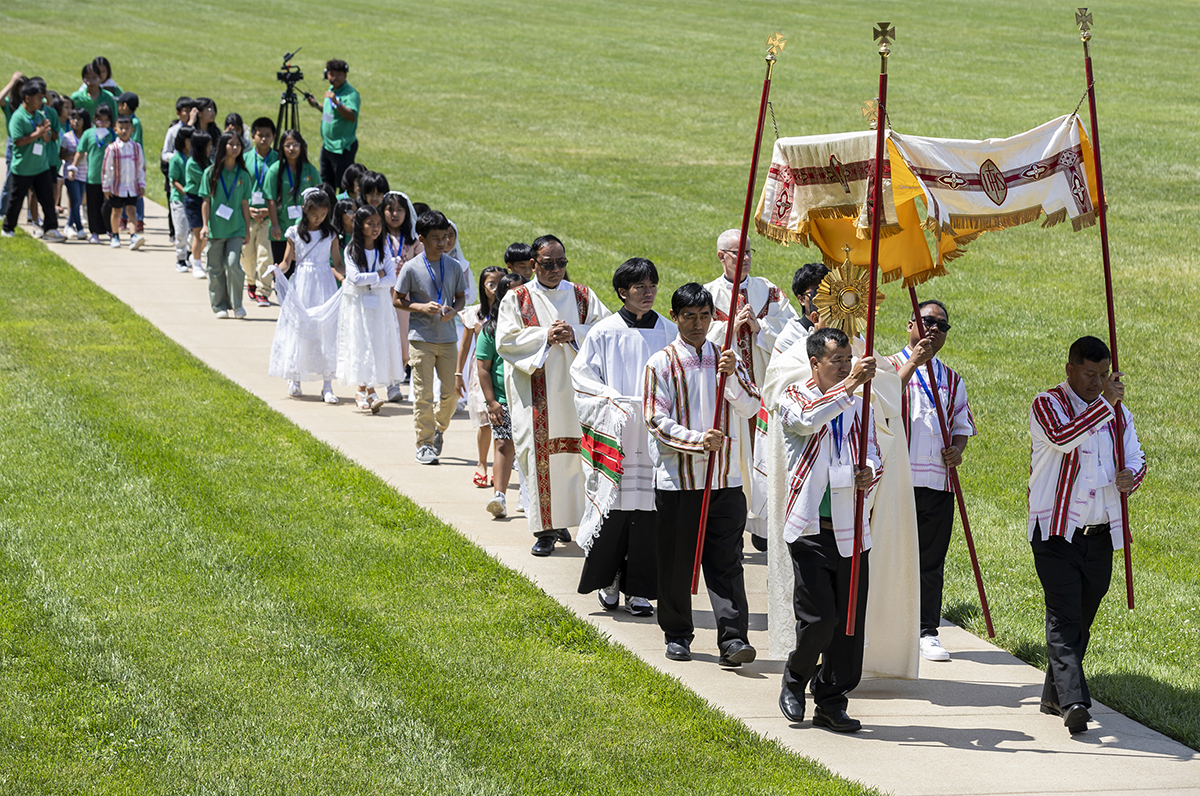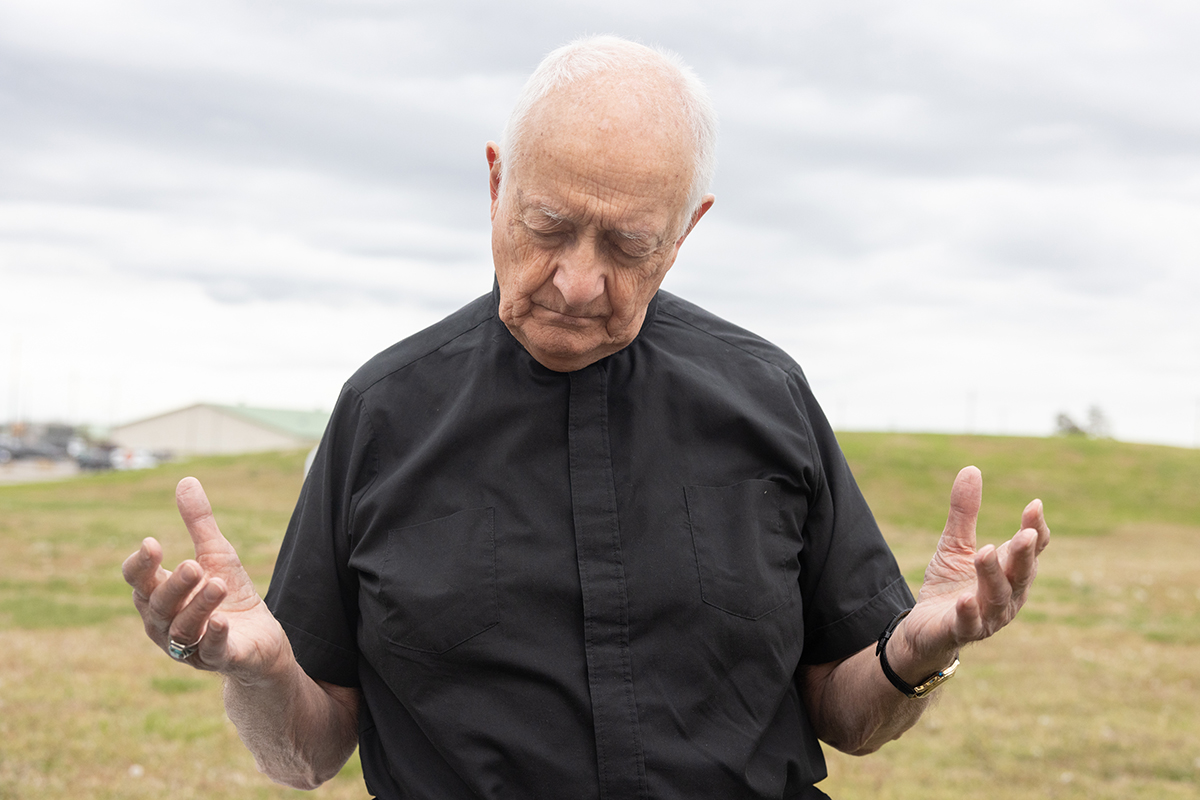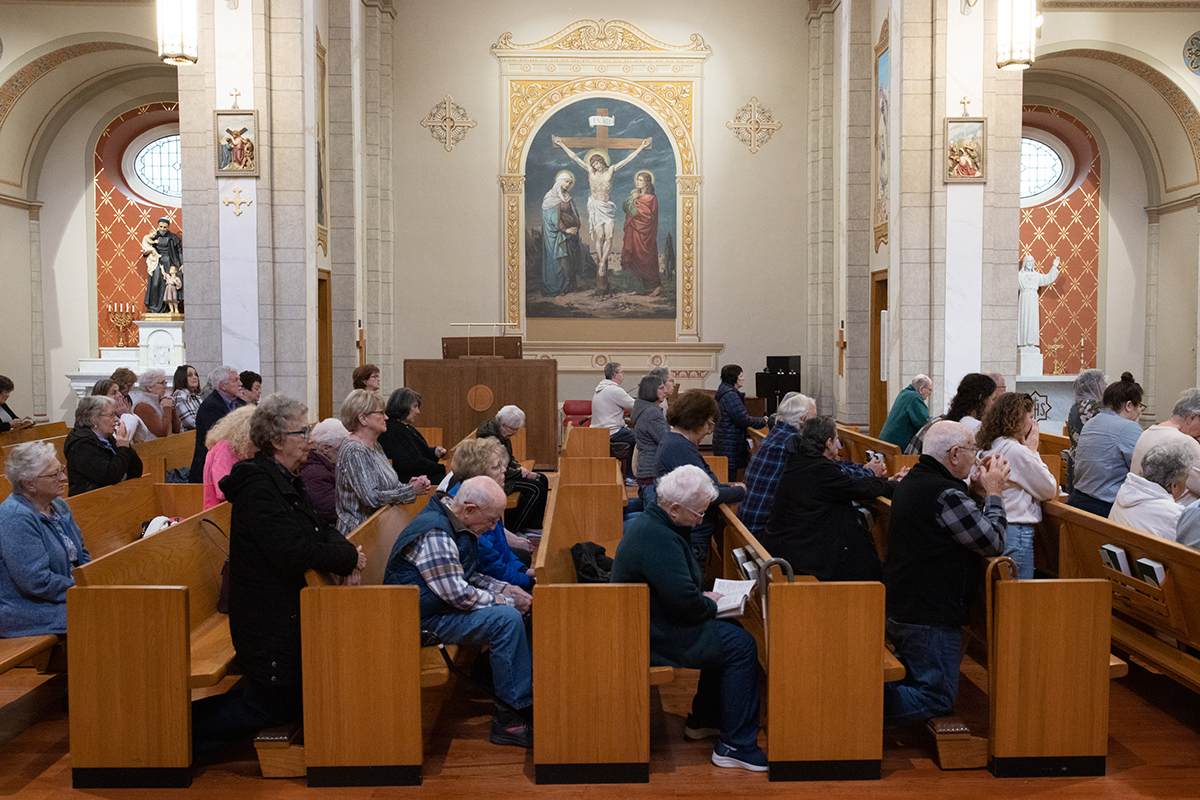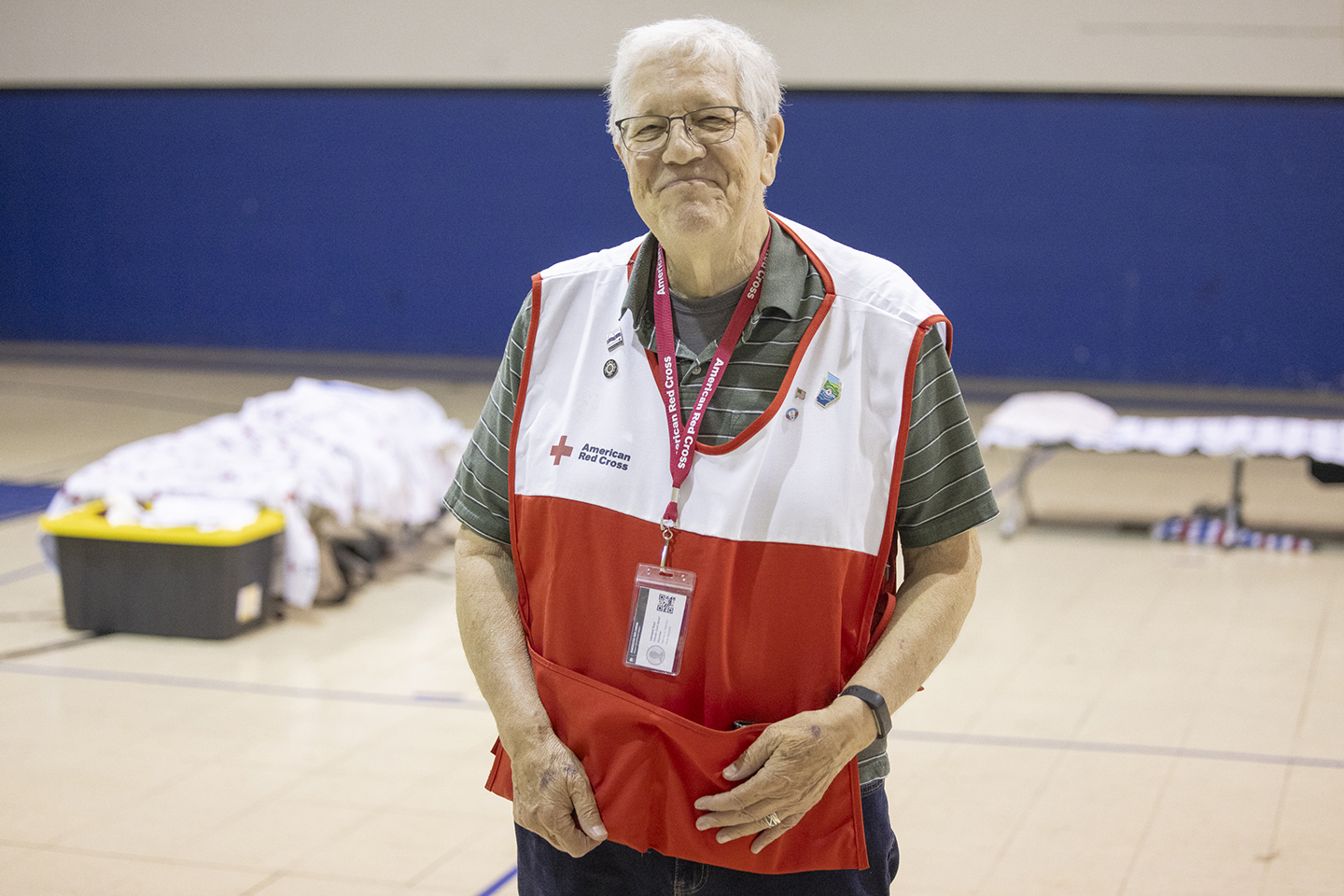Missionary visited a saint, trained health workers
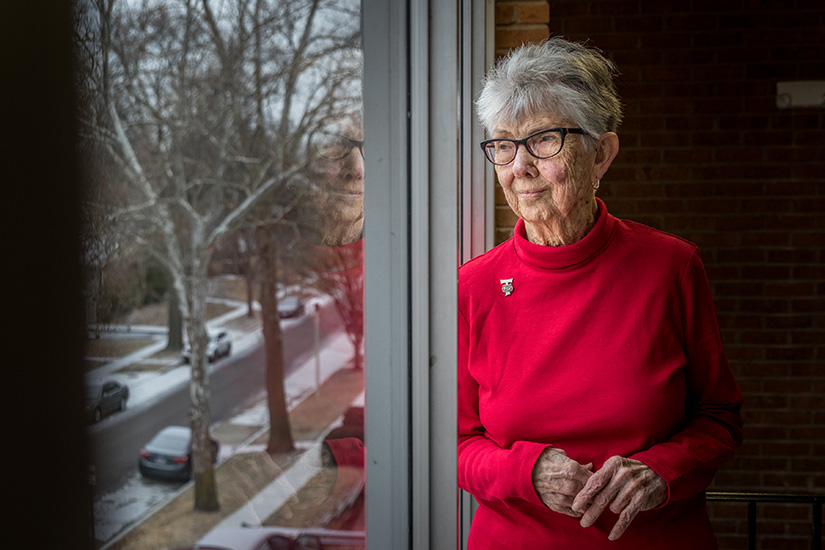
Franciscan Sister of Mary had common bond with St. Dulce of Brazil

Sister Vicky Ewers’ visits with a future saint known as “the Mother Teresa of Brazil” were memorable.
Sister Vicky went to Brazil in 1972 with Sister Mary Stenger and Sister Jovita Stenger to serve as missionaries doing health care in the central part of the state of Bahia. They sometimes traveled to the capital, Salvador, where Hermana (Sister) Dulce Lopes Pontes — canonized as St. Dulce in 2019 — established her base.
Sister Vicky was impressed by the saint-to-be: “She’s a very small person and very gracious. She was very devoted to the homeless sick.”

St. Dulce was pleased when she learned that her visitors from St. Louis were Franciscan Sisters of Mary and were doing health care in a rural area. The saint’s hospital was not even close to a typical hospital, Sister Vicky said. Her mother superior had given her the henhouse on the community’s property to care for men who had been evicted from their residence and had no place to go. St. Dulce had agreed to take care of the chickens, and she did until she needed them to feed the hungry. Later, a real hospital was built on that site for St. Dulce’s ministry.
Each man carried a plastic bag with a bowl, cup and utensils. They slept wherever they could because there weren’t enough beds. “Anybody working there had to be careful to not step on people,” Sister Vicky recalled.
Whenever visitors from the United States came to visit the Franciscan Sisters of Mary, the sisters took them to see St. Dulce’s work.
The three missionaries trained people to be health workers in their villages doing tasks such as giving shots and taking blood pressure. Oxfam International offered to provide blood pressure cuffs, but the only way to get them into the country was to go through St. Dulce, “because she could get anything through customs,” due to the admiration others had of her, Sister Vicky said. So they’d travel to Salvador to pick them up. “I can’t tell you how many times we were there when she would put her hand on my head and talk. She was a very sweet person. She was unassuming and was very well-liked by the people.”
Sister Vicky was 35 when she went to Brazil. “It was the most wonderful 32 years of my life. We were able to help the people
help themselves.”
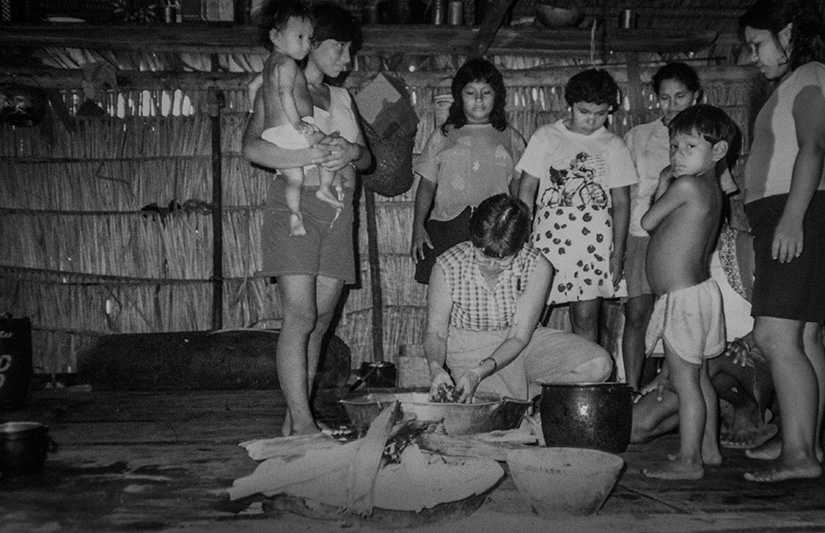
During their time in Bahia, they trained more than 500 village health workers, and many of them took the sisters’ course to become midwives. Some later became practical nurses and one taught Braille to blind students. Another, a high school student, later worked in community development and received a doctorate in sociology. “We helped them see and feel they were important, that they had potential to do something with their life and to return and help people of their village,” Sister Vicky said. “That’s what we were there for.”
In 1986, the three Franciscan Sisters of Mary left for Manacaparu in the Amazon region. They took a boat to the 120 villages on the river. The villages generally had a visit from the priest and others from the parish once a year. The women religious dubbed themselves “Gypsies of the Prelacy” because of their frequent travels.
The Redemptorist priests who staffed the parish made the novena to Mother of Perpetual Help popular. The people would get together and say the novena prayers and on Sunday would say prayers of the Mass even though they didn’t have the opportunity to receive Communion.

UNICEF partnered with the Church in Brazil, which had a broad outreach for lowering infant mortality. A laywoman who was a pediatrician started the health program in 1982, and the three Franciscan Sisters of Mary took it over when they arrived in the Amazon. They worked with laypeople to reach out to families, especially pregnant women, visiting every month to check on children and ensure that pregnant women were getting prenatal care. When Sister Vicky and the two other sisters left 18 years later, they turned the program over to laypeople whom they trained to run it.
In 2018, the program celebrated its 30th anniversary, and Sister Vicky and another sister went there to the celebration. Some of the people who started with the program still were working in it.
Sister Vicky is a nutritionist, Sister Jovita, who died in 2013, was a registered nurse and Sister Mary, who died in 2014, worked in administration.
Sister Vicky, 84, still keeps in touch with some of the people she knew in Brazil. The Amazon region was hit hard by COVID-19. She urges people to pray for the missions and to contribute to mission collections. “It really does go to the missionaries, and it helps,” she said. “Without prayer though, all the money in the world won’t do as much as a little money and a lot of prayers.”
>> St. Dulce
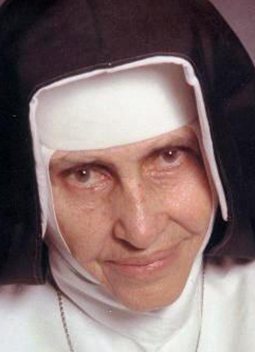
Brazilian Sister Dulce Lopes Pontes was canonized by Pope Francis on Oct. 13, 2019.
Her secular name was Maria Rita, and she was born in Salvador de Bahia in 1914. After her mother died, she went to live with her aunts. When she was 13, they took her to visit one of the poorest areas of the city. Maria Rita was so struck by what she saw that she began dedicating herself to the poor and needy of her neighborhood.
Particularly devoted to Saint Therese of the Child Jesus, she felt a strong calling to religious life, ready to perform the what she called the “small acts of love” that Jesus transforms into great works.
After entering the Congregation of the Missionary Sisters of the Immaculate Conception of the Mother of God, she attended to the local poor and destitute. Eventually she founded the Sao Francisco’s Workers Union and opened a clinic, a library, a school and even cinema for the poor.
As Sister Dulce’s reputation grew, so did the number of people seeking her help and attention. She started out housing them in abandoned buildings in a rundown area of Bahia, known as “Rat Island.”
>> Happiness
An important thing Sister Vicky Ewers, FSM learned during her years in Brazil was that poverty doesn’t mean unhappiness.
“With the little that the Brazilian people have, they are among the happiest people in the world. They know how to share with one another their physical and spiritual goods. I have a great sense of what Church means and how my actions, my words, my omissions and sins have a great impact on the whole Church,” Sister Vicky wrote in her religious community’s publication, FSM Magazine, when she returned from Brazil in 2004.
Not only have we chosen to “stand with our sisters and brothers who are poor and on the margins of society,” we have striven to empower them, especially the women, by helping them, she stated, realize their dignity as children of God; claim basic rights of citizenship in housing, food, education, health and well-being; take responsibility for their lives, their community and the environment by realizing their talents and gifts and developing them for others; and serve as apostolic agents of change while promoting peace, justice and nonviolence.
Sister Vicky explained she was evangelized more than she evangelized and received more than she gave. “I have become aware of the working of the Spirit among the people and in their culture, while striving to help them recognize and proclaim the work of the Lord in their midst and their participation in it. God walks before us and with us and we with God — together we make history.”
>> World Day of the Sick
The Catholic Church marked the annual World Day of the Sick Feb. 11, the feast of Our Lady of Lourdes. The theme of this year’s observance was, “You have but one teacher and you are all brothers” (Matthew 23:8), which calls for “a trust-based relationship to guide care for the sick.”
“A society is all the more human to the degree that it cares effectively for its most frail and suffering members, in a spirit of fraternal love.” Pope Francis stated in his message for this year’s World Day of the Sick.
In order to fight hypocrisy and self-idolatry, he says, Jesus asks us to “stop and listen, to establish a direct and personal relationship with others, to feel empathy and compassion, and to let their suffering become our own as we seek to serve them,” Pope Francis wrote in the message.
Pope Francis says that the annual day “is an opportunity to devote special attention to the sick and to those who provide them with assistance and care both in health care institutions and within families and communities.” He expressed his spiritual closeness and the Church’s loving concern for those suffering the coronavirus pandemic, especially the poor and the marginalized.
>> Missions
The Mission Office of the Archdiocese of St. Louis assists the local Catholic community to grow in awareness of the ad gentes (to the nations) missionary efforts of the Church, both universal and local, and to foster solidarity and support through prayer, sacrifice, and generosity as a natural expression of missionary discipleship.
One way the Mission Office supports the Universal Church is through the Pontifical Mission Societies, a worldwide network at the service of the Holy Father to sustain the mission and the young Churches through prayer and charity.
For more information or to support the missions, visit www.archstl.org/mission-office.
Sister Vicky helped a blind man across a boat dock in the Amazon.Photo Credits: Photos courtesy Sister Vicky Ewers, FSM Sister Vicky Ewers’ visits with a future saint known as … Missionary visited a saint, trained health workers
Subscribe to Read All St. Louis Review Stories
All readers receive 5 stories to read free per month. After that, readers will need to be logged in.
If you are currently receive the St. Louis Review at your home or office, please send your name and address (and subscriber id if you know it) to subscriptions@stlouisreview.com to get your login information.
If you are not currently a subscriber to the St. Louis Review, please contact subscriptions@stlouisreview.com for information on how to subscribe.

